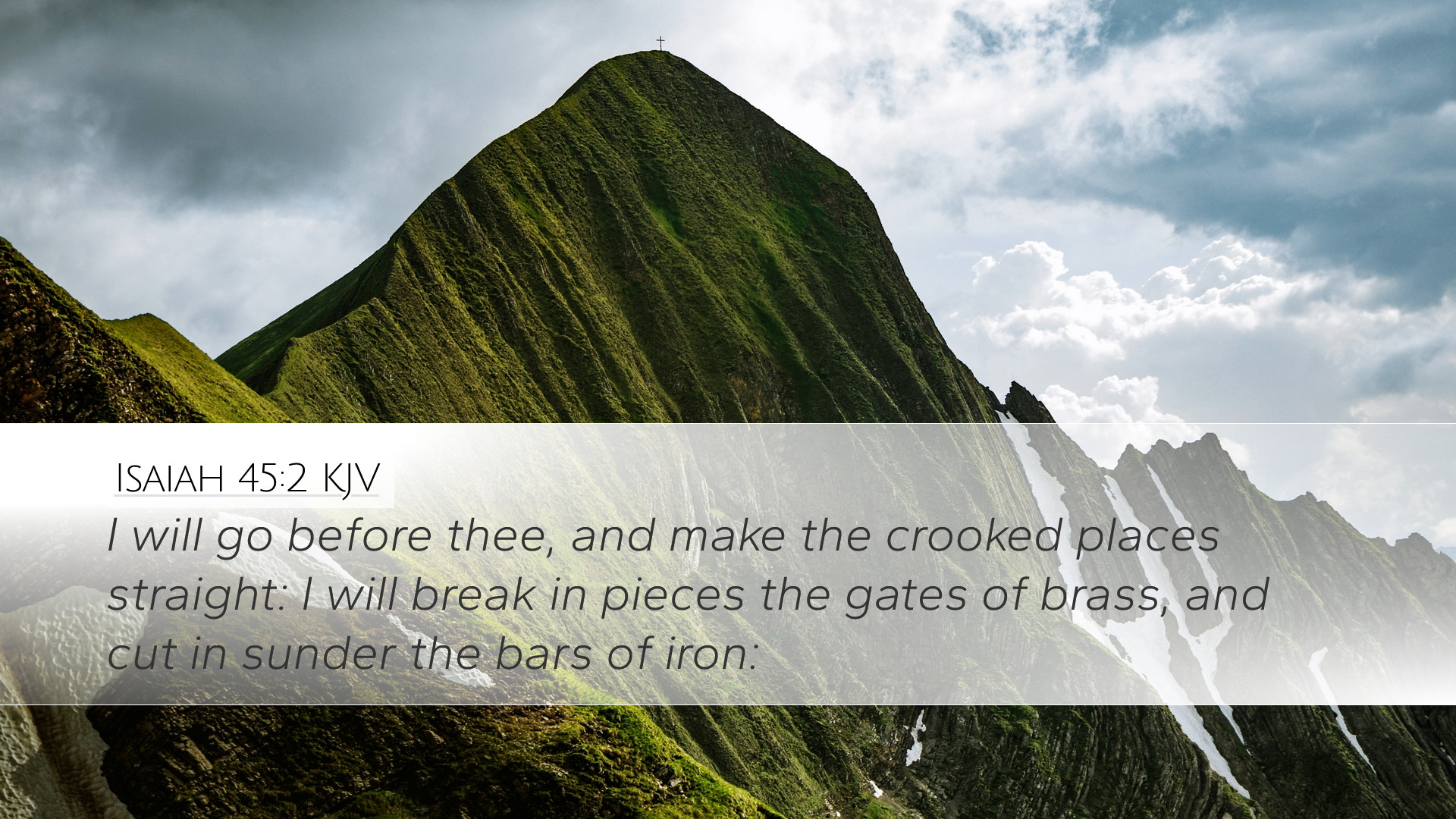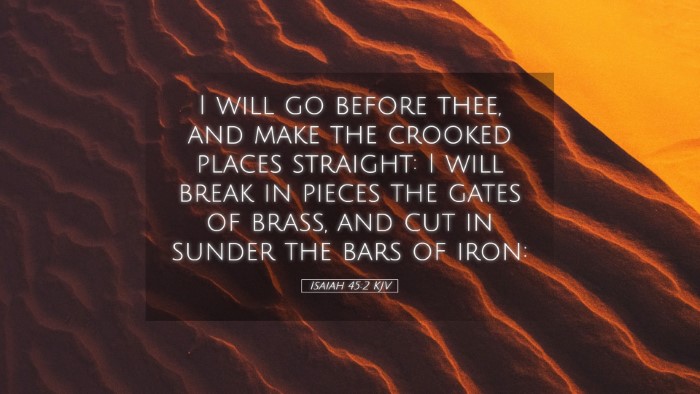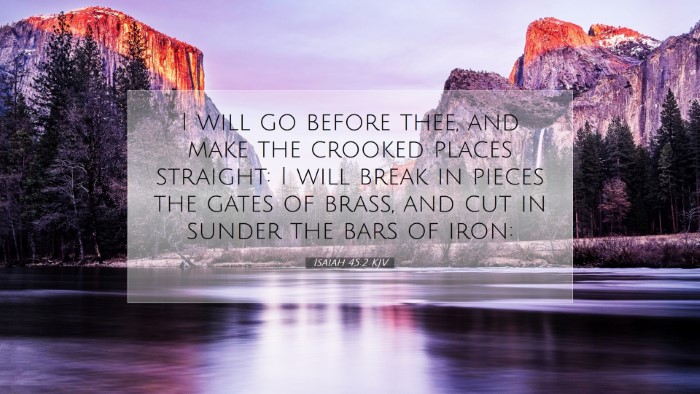Isaiah 45:2 Commentary
Bible Verse: "I will go before thee, and make the crooked places straight: I will break in pieces the gates of brass, and cut in sunder the bars of iron."
Contextual Overview
In Isaiah 45, the prophet speaks of God's sovereignty and His plan for Israel, particularly emphasizing God's use of Cyrus, the Persian king, as a tool to fulfill His purpose. This verse highlights the divine assistance that God provides to His chosen people, ensuring their paths are clear and obstacle-free as they return from exile.
Commentary Insights
Matthew Henry's Commentary
Matthew Henry emphasizes the reassurances given to God's people regarding His prior provision and guidance. He reflects on the metaphor of making crooked places straight, which signifies the removal of difficulties and hindrances that may prevent Israel from achieving their destiny. Henry notes that God doesn't merely remove obstacles but actively prepares the way for His people, reminding them of His omnipotence and faithfulness.
Albert Barnes' Commentary
Albert Barnes elaborates on the notion that God's going before His people can be understood as a promise of guidance and protection. He discusses the significance of 'gates of brass' and 'bars of iron' as formidable barriers that represent the might of earthly powers. Yet, God assures His people that He has the authority and ability to dismantle these barriers. Barnes points out that the historical context shows how God uses kings and nations to fulfill His plans, and specifically how Cyrus was raised up to bring deliverance to Israel.
Adam Clarke's Commentary
Adam Clarke provides a profound theological reflection on this verse, interpreting the "crooked places" as the trials and tribulations faced by God's people. He sees this as a promise that not only physical paths but also spiritual and moral obstacles will be addressed by God's intervention. Clarke highlights the transformational power of God, who not only aids His people outwardly but also reshapes their inner struggles, ensuring they walk in righteousness. He also notes the phrase “break in pieces” symbolizes the total destruction of impediments to God’s work.
Theological Implications
This verse presents several theological themes that are critical for understanding God's nature and His relationship with humanity:
- Sovereignty: God’s ability to intervene in history demonstrates His ultimate authority over nations and rulers.
- Providence: The promise of divine guidance ensures that God is actively involved in the lives of His people.
- Deliverance: The metaphor of breaking gates represents God's power to provide rescue and freedom.
- Transformation: God's work is both external and internal, leading to holistic change in the believer's life.
Application for Believers
For pastors, students, and theologians, this verse serves as a powerful reminder of God's unwavering support. In moments of uncertainty or hardship, believers can rest assured that God is actively involved in making paths straight and removing barriers. The text calls for faith in God's promises and courage to move forward, knowing that He has already prepared the way.
Practical Steps:
- Prayer for Guidance: Seek God's direction in difficult circumstances.
- Trust in His Timing: Acknowledge that God’s plans may unfold differently than expected but are ultimately for our good.
- Share Encouragement: Remind others of God’s promises and faithfulness, fostering a community of hope and resilience.
Conclusion
Isaiah 45:2 is a profound declaration of God's commitment to His people. Through insights from public domain commentaries, we recognize the depth of its meaning. As this verse reassures us, God not only goes ahead of us to clear the way but also empowers us in our journey. Let this assurance guide pastors, scholars, and all believers in their walk with God, inspiring courage and unwavering faith in His ultimate plan.


